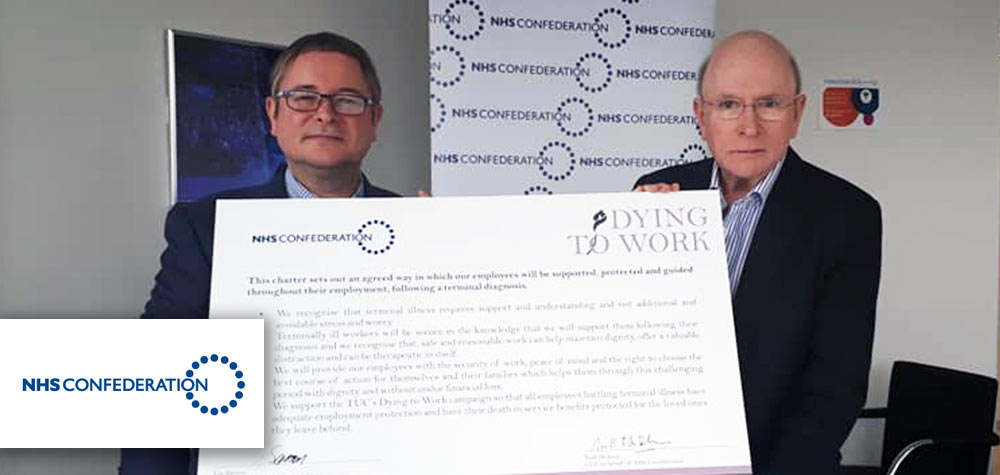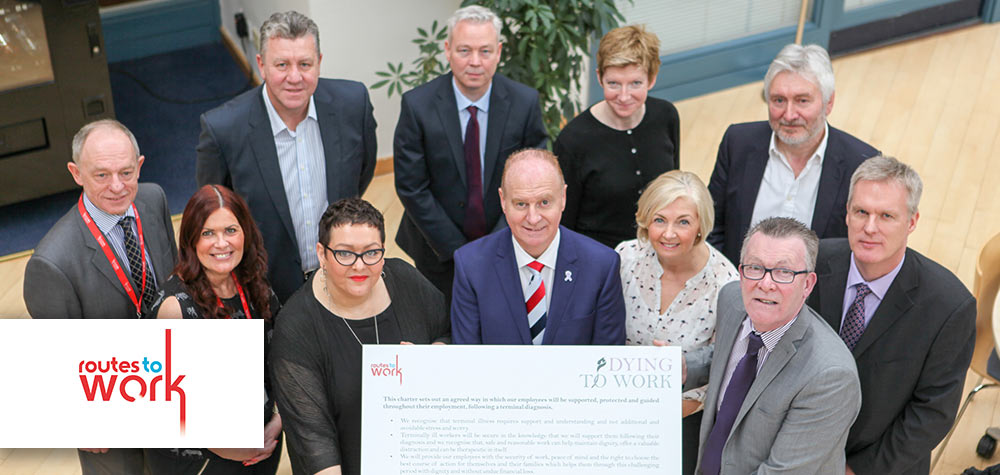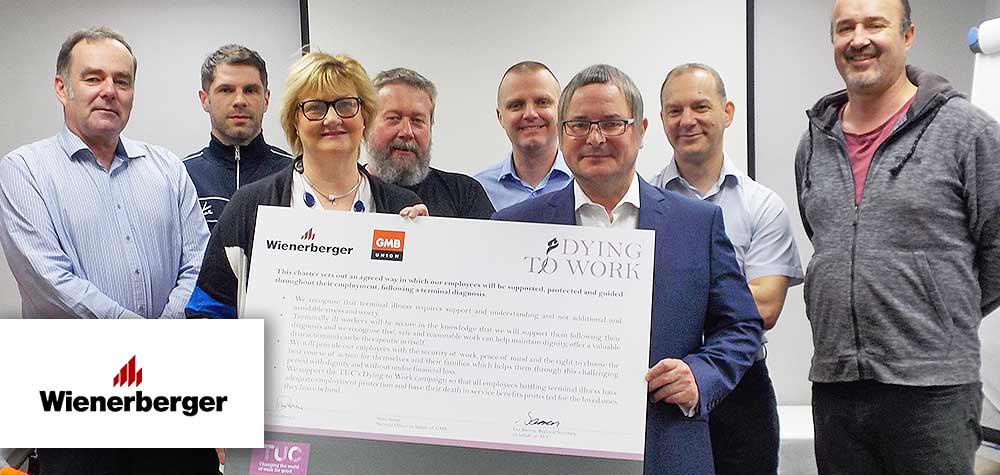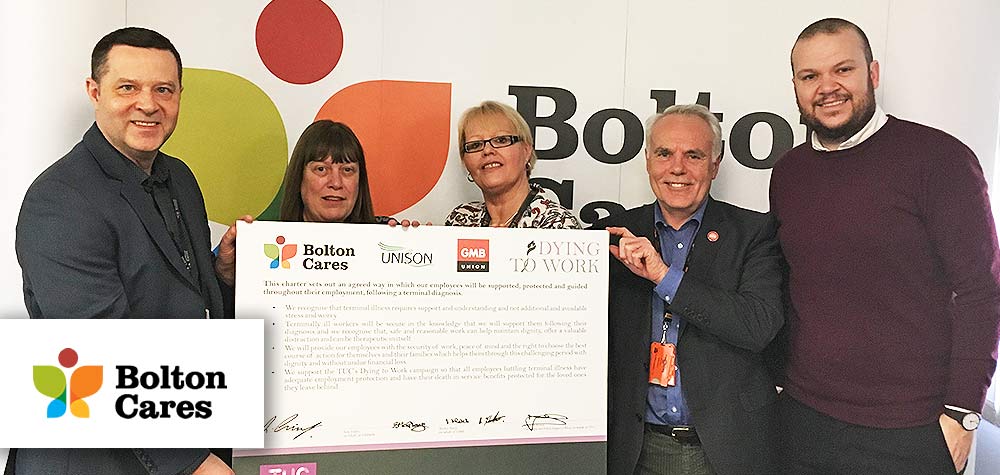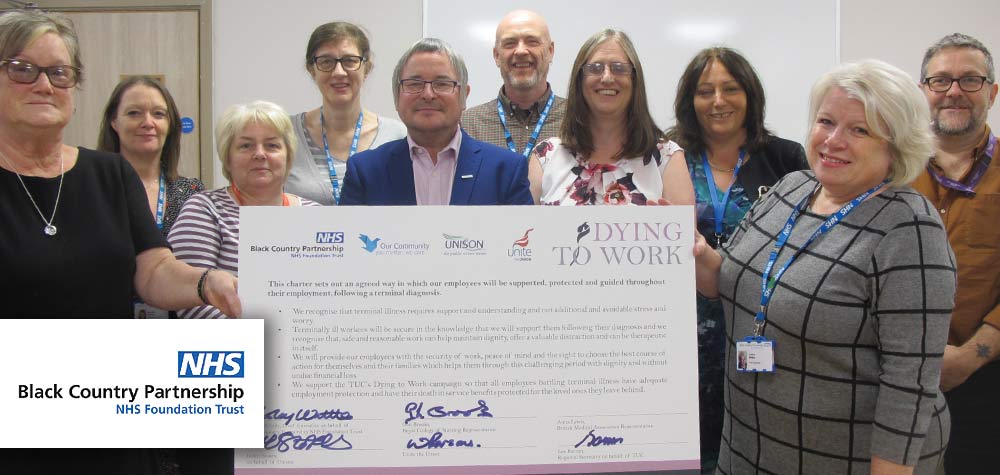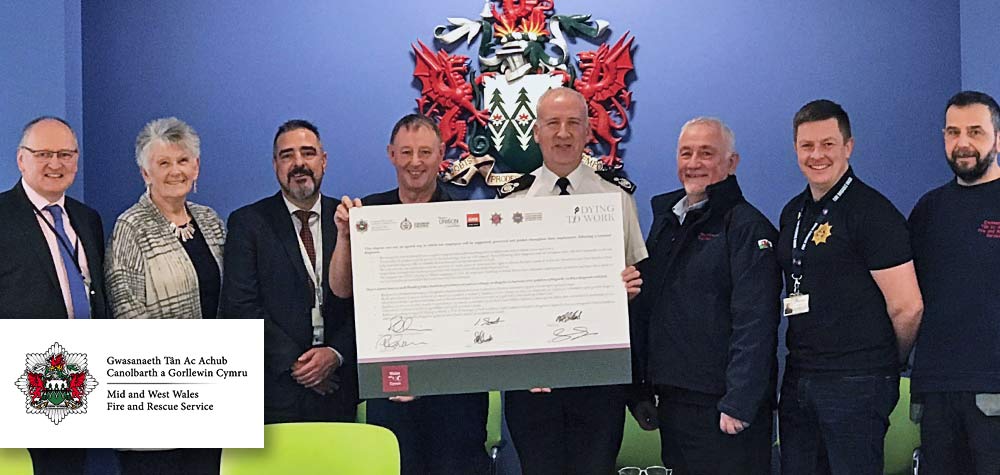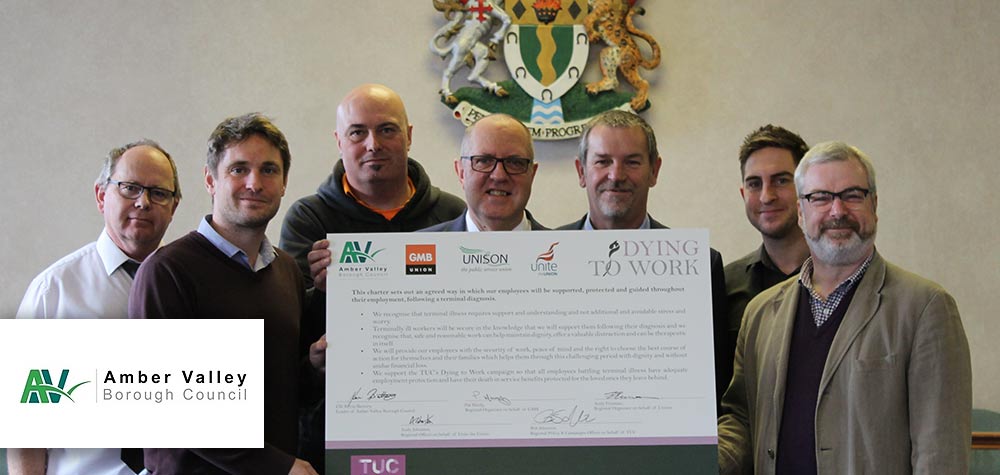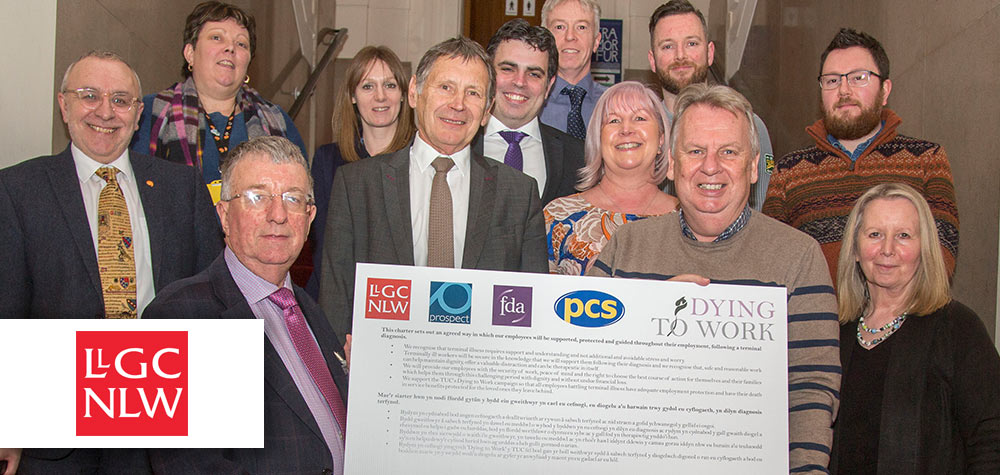Nottinghamshire Healthcare NHS Foundation Trust
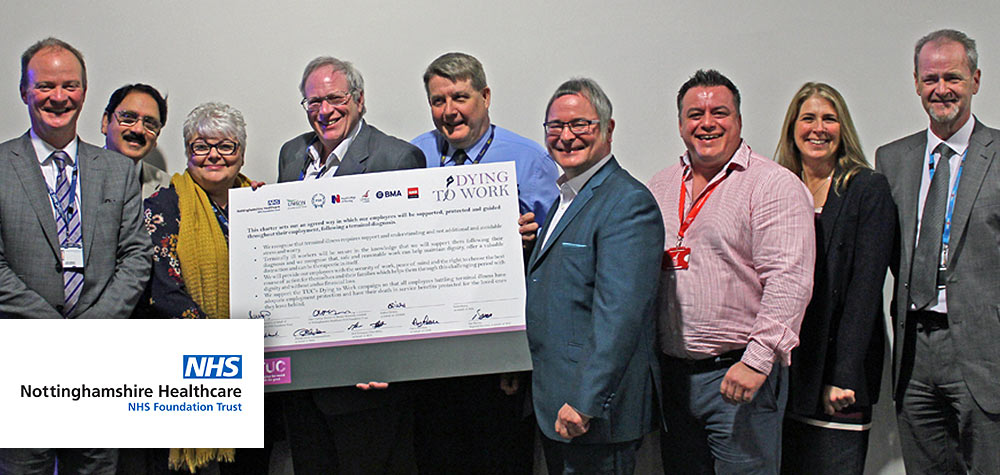
Thank you to Nottinghamshire Healthcare NHS Foundation Trust who signed the charter on 18th April 2019 providing protection for their 8,686 employees.
Chief Executive of Nottinghamshire Healthcare, John Brewin, said:
“I’m happy to sign this charter to protect the rights of any of our employees who become terminally unwell. To be in that position is terrible enough without having employment worries too. All our employees deserve this commitment.”

